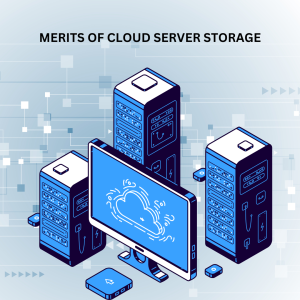As organizations increasingly move toward digital transformation, one of their most significant decisions is whether to adopt Cloud Server Hosting vs. On-Premise Server Hosting. Both cloud and on-premise hosting have unique benefits and challenges. This article will break down both options and help you determine the best fit for your business.
READ: How Cloud Server Hosting Simplifies Your IT Infrastructure
Understanding Cloud Server Hosting vs On-Premise Server Hosting
Before diving into the pros and cons of each, it’s essential to understand what cloud and on-premise security mean.
-
Cloud Server Hosting refers to a model where data and applications are hosted on remote servers and managed by third-party cloud providers like Amazon Web Services (AWS), Microsoft Azure, or Google Cloud. The cloud service provider provides and manages security features such as firewalls, encryption, and intrusion detection in this setup.
-
On-premise Server Hosting refers to an organization’s internal IT infrastructure, where all servers, databases, and security systems are physically housed. In this model, businesses must maintain and secure their hardware, software, and security measures.
RELATED: The Benefits of Managed Server Hosting for Small Businesses
Cloud Server Hosting: Benefits and Considerations
Benefits of Cloud Server Hosting
-
Scalability and Flexibility
Cloud server allows businesses to scale their resources according to demand. As your business grows, you can easily increase storage, bandwidth, and security capabilities without significant upfront investments in physical infrastructure. -
Cost-Effectiveness
With cloud servers, businesses often pay only for the resources they use. This model eliminates the need for significant capital expenditure on hardware, data centers, and IT staff to manage security infrastructure. -
Access to Advanced Security Tools
Cloud providers invest heavily in developing and deploying advanced security tools, such as AI-powered threat detection, automated monitoring, and real-time response systems. These tools are often complex for small or medium-sized businesses to afford with on-premise solutions. -
Automatic Updates and Patches
Cloud server providers automatically update systems, ensuring your security infrastructure always runs the latest software and features. This minimizes the risk of cyberattacks exploiting known vulnerabilities. -
Disaster Recovery
Cloud platforms offer disaster recovery services that ensure your business can quickly recover from cyberattacks, hardware failures, or natural disasters. Cloud backup and recovery systems are usually more affordable and efficient than on-premise solutions.
MORE ON THIS: Merits of Cloud Server Storage
Considerations for Cloud Server Hosting
-
Data Privacy and Compliance
Storing data in the cloud means relying on a third party to manage sensitive information. Compliance with privacy laws (such as GDPR, HIPAA) can be challenging for businesses in highly regulated industries, like healthcare or finance. Ensuring that your cloud provider offers robust compliance and data protection features is crucial. -
Dependence on Internet Connectivity
Cloud security is only as strong as your internet connection. Poor or unreliable internet can cause access issues and affect the effectiveness of cloud-based security solutions. -
Vendor Lock-In
Switching cloud providers or moving data back on-premise can be complex and costly, often requiring significant effort and resources. Businesses need to consider long-term vendor relationships when choosing a cloud provider.
On-Premise Servers: Benefits and Considerations
Benefits of On-Premise Server Hosting
-
Complete Control Over Servers
With on-premise security, businesses have total control over their data, infrastructure, and security measures. This level of control is significant for companies that handle highly sensitive data and require custom security protocols. -
Customizable Server Solutions
On-premise systems allow businesses to customize their security infrastructure based on specific needs. This can be critical for organizations with unique or complex security requirements that standard cloud security offerings may not meet. -
Reduced Dependency on External Providers
On-premise security minimizes the reliance on third-party providers. On-premise solutions might be more appealing if your business values autonomy and direct oversight. -
Fewer Concerns About Data Privacy
With on-premise security, businesses have direct control over data storage and privacy, reducing concerns about third-party access to sensitive information. This can be reassuring for companies operating in highly regulated sectors.
Considerations for On-Premise Server Hosting
-
High Capital Costs
Setting up an on-premise server infrastructure requires significant upfront investment in hardware, software, and IT staff. Over time, this cost can add up, particularly if the business needs to expand its infrastructure. -
Maintenance and Management
Unlike cloud services that manage updates and patches, on-premise systems require businesses to handle these tasks themselves. This requires dedicated IT staff to ensure the systems are secure, up-to-date, and running optimally. -
Scalability Challenges
Scaling on-premise server systems can be costly and complex. Expanding storage or upgrading servers requires significant planning, investment, and downtime, making it less flexible than cloud security. -
Disaster Recovery Complexities
With on-premise servers, businesses must create and maintain their disaster recovery and backup systems. This can be resource-intensive and may not provide the same level of speed and efficiency as cloud-based solutions.
Cloud Server Hosting vs. On-Premise Server Hosting: A Comparison
Feature Cloud Servers On-Premise Servers Control Over Data Limited (relies on the provider) Full control over data storage and management Cost Subscription-based (pay-as-you-go) High initial capital costs Scalability Highly scalable and flexible Limited by available physical infrastructure Security Features Advanced, automated, and continuously updated Customizable but requires manual updates and patches Disaster Recovery Robust and automated Requires manual setup and management Compliance and Privacy Provider-dependent, compliance can be complex Full control over compliance and privacy Maintenance Managed by the cloud provider Requires dedicated internal IT resources
Which Is Right for Your Business?
Choosing between cloud and on-premise security depends on your business’s needs, resources, and risk tolerance. Here are some guidelines to help you make the best decision:
-
Choose Cloud Servers Hosting If:
-
You’re looking for cost-effective, scalable solutions.
-
You want to offload the responsibility of maintaining and updating your security infrastructure.
-
Your business is growing rapidly and needs flexibility.
-
You need access to advanced security tools without significant upfront costs.
-
Your business operates in an industry where disaster recovery is a priority.
-
-
Choose On-Premise Servers Hosting If:
-
You need complete control over your data and security measures.
-
Your business has highly specific or complex security requirements that cloud providers cannot meet.
-
Your business handles sensitive data, and you are concerned about data privacy and compliance.
-
You have the internal resources to manage, update, and maintain your security infrastructure.ALSO READ: Unleashing the Power of Managed Servers: Advantages and Benefits of Managed Servers
-
Conclusion
Both cloud and on-premise servers have unique strengths and challenges. The best choice for your business depends on factors such as your company’s size, budget, security needs, and long-term goals. For many businesses, a hybrid approach combining the flexibility and scalability of cloud security with the control of on-premise servers might provide the best of both worlds.
Remember, regardless of the server model you choose, it’s crucial to implement strong cybersecurity practices, such as regular updates, employee training, and proactive threat detection, to ensure your business is well-protected in today’s dynamic threat landscape.




